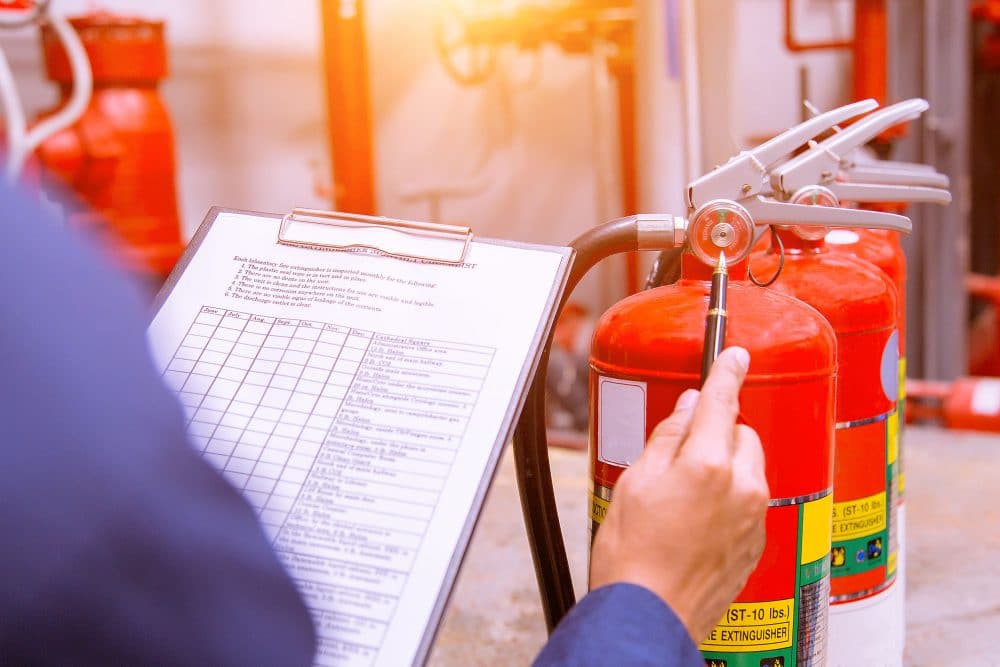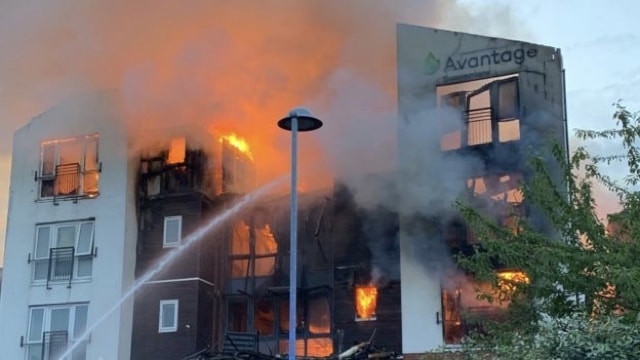Be smart, be safe and contact us today for free impartial advice from the experts.


The fire risk assessment should identify any ‘significant finds’ and fire risks to the occupiers or relevant persons in the building. The report should also contain an ‘action plan’ to address any risks and to either remove these risks or reduce them down to an acceptable level.
The fire risk assessment must cover as a minimum the following areas:
1. Ignition sources
2. Combustible materials
3. Prevention and management
4. Means of escape
5. Fire Service operational facilities
The ‘action plan’ must be kept up to date following any actions addressed, and reference to these actions must be documented.
The fire risk assessment must be reviewed on a regular basis, and any changes to the buildings structure, layout, or occupancy type, will require a review of the original fire risk assessment.
Our team of highly experienced and skilled fire risk assessors are available to carry this service for you. They all have many years in the fire and rescue services, so have the practical experience and knowledge to ensure that your assessment is ‘suitable and sufficient’. We have worked with many UK fire and rescue services to ensure your fire risk assessment is fully compliant and can offer this service on a daily rate or per building.
Below you will find answers to commonly asked questions.
Not necessarily. If your premises and working practices haven’t changed then a review is not necessary annually, however a number of Fire Services are recommending annual reviews, particularly in sleep accommodation such as residential and nursing care homes, hospitals, hotels and boarding houses. The regulatory reform (fire safety) order 2005 states that fire risk assessments should be reviewed regularly but doesn’t state a time period.
Yes, if you are confident and competent, depending on the size and complexity of your premises. If you are unsure of any aspect then you should seek professional advice. There are Government issued guidance documents available to help, but unless you are confident in following these and have an understanding of the behaviour of fire it is always worth contacting an expert.
The majority of buildings in the UK require a fire risk assessment. Any building where persons are employed to work, or where members of the public visit, requires a fire risk assessment carrying out. Where there are five or more employees the fire risk assessment must be documented. There are a variety of fire risk assessment templates that you can download off the internet, the common one used by a lot of fire risk assessors is called PAS 79 and can be found on a simple search on Google.
The institute of fire engineers is the most widely respected organisation outside of the fire and rescue services. There are two main qualifications by examination that you should look for. These are Graduate (GIFireE) and Member (MIFireE) — both are carried by people who have taken a range of examinations covering the whole sphere of fire safety. Other organisations such as NEBOSH also offer qualifications in firer safety. However, it is not just the examinations and qualifications these individuals possess but their experience. As evidence of this you can ask to see previous reports they have completed and in what sector they are competent.
You are breaking the law if you do not have a fire risk assessment and you are a business owner/occupier of a premises where persons are working or members of the public visit. There are cases now documented with the level of fines advised for information. The amount of fine can now also be linked to a percentage of the turnover of your business.
Be smart, be safe and contact us today for free impartial advice from the experts.
Our experts have many years of experience in the industry and have FDIS and GIFireE qualifications.
Email: sales@activefiresafety.com
Phone: 01332 480 247
We’re here to help, Monday to Friday, 9am–5pm. We aim to respond within 24 hours, although this may be longer during busy periods.
Active Fire Safety Solutions operates in an industry built on trust, knowledge and expertise in fire safety.
Necessary cookies are absolutely essential for the website to function properly. This category only includes cookies that ensures basic functionalities and security features of the website. These cookies do not store any personal information.
Any cookies that may not be particularly necessary for the website to function and is used specifically to collect user personal data via analytics, ads, other embedded contents are termed as non-necessary cookies. It is mandatory to procure user consent prior to running these cookies on your website.
Sign up to the Active Fire Safety Solutions newsletter.
You have successfully joined our subscriber list.
Please check your inbox and junk/spam folder. An email should arrive shortly.